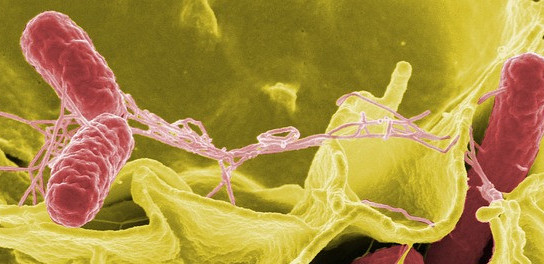
Both Iron and vitamin B12 are essential building blocks in the production of red blood cells. There are a host of diseases that are associated with the deficiency of iron and B12 vitamins. It seems that the lack of these vitamins is rising every day to the extent of health crises all over the world. Iron deficiency is one of the highest globally. People are prescribed Iron supplements left and right but does this solve the problem? No, Let’s dig in and get to the root cause of this problem.
What does the gut have to do with a deficiency of Iron and B12? As surprising as it might seem, it has everything to do with the gut. How? Let’s find out, you see Vitamin B12 is absorbed in the gastrointestinal tract, now imagine if the gut is afflicted by gut disorders such as IBS, Celiac, etc. The deficiencies of both vitamins will be inevitable which can lead to serious issues like autoimmune disorders, cardiovascular disease, depression, anemia, etc.
What’s the link between Iron and vitamin B12 deficiency?
Insufficient Iron and B12 always go hand in hand. When vitamin B12 is low, Iron will always be low. Hence, low Iron always starts with a deficiency of vitamin B12 as a result lack of iron will never happen on its own. Therefore if you are diagnosed with Iron deficiency look no further but the problem might be insufficiency in vitamin B12.
Signs & symptoms of vitamin B12 deficiency?
- Tiredness, fatigue,
- Aches, muscle weakness
- Shortness of breath
- Weight loss
- Restlessness
- Diarrhea, nausea
- Heart palpitations
- Numbness and tingling in hands and feet
- Brain fog and memory loss

- Mood changes like anxiety and depression
Who is at high risk for vitamin B12 deficiency?
Vitamin B12 affects people of all ages but specifically but most importantly these are the major ones.
- Older folks with impaired digestion due to low production of hydrochloric acid as this helps with the digestion of B12
- Vegetarian people- Vitamin B12 is only found in animal products
- Alcoholics
- People with digestive diseases like, Crohn’s and Celiac
- Pregnant women
- Children and adolescence
- People with kidney disease.
What’s the common cause of vitamin B12 deficiency?
- Lack of Intrinsic factors – This is a protein made in the gut that helps in the absorption of vitamin B12
- Blood loss – When blood is lost, for instance, in accidents, during surgery, etc.
- Low gastric acid- some medications such as proton pmpm inhibitors (PPI) treat heartburn but do more harm than good by lowering the hydrochloric acid needed with the digestion of Vit. B12 This deficiency of B12 is known as pernicious anemia
- Small Intestinal Bacterial Overgrowth (SIBO)- is a condition where bad bacteria overpower the good bacteria preventing vitamin B12 to absorbed from the food we consume.
- Low dietary intake- Not having enough dietary intake from food with vitamin B12
- Surgery removal of part of the small intestines- Especially when the end of the small intestine is removed which impairs absorption.
- Autoimmune diseases such as Crohn’s and celiac – which can impair the Ileum leading to a lack of absorption of vitamin 12
- Insufficient digestive enzymes. These are enzymes produced in the pancreas that are crucial for the breakdown of vitamin B12 in the duodenum where it takes place.
- MTHFR Gene – Those people who have the mutation of this gene have trouble utilizing vitamin B12
- Metformin – Lower absorption of vitamin B12
What bacteria causes Vitamin B12 deficiency?

The major bacteria that is associated with vitamin B12 deficiency is Helicobacter pylori. Because H.pylori survives on low gastric acid in the stomach and develops ulcers which then prevent the B12 vitamin from being absorbed. Also, the intrinsic factor (IF) needed by B12 is a protein made in the stomach hence when the gut is damaged this protein is compromised.
Small intestinal bacterial overgrowth (SIBO) is a condition where bad bacteria overpower the good bacteria and start debilitating vitamin B12 absorption.
Does vitamin B12 deficiency affect the gut?
The gut bacteria synthesize and use vitamin B12 especially (cobalamin) which is a must for a dozen enzymes to function properly. Vitamin B12 has so many benefits to our health and without it, our bodies won’t be able to function properly. In addition, it provides a healthy environment for the gut microbiome that is unknown yet.
How to diagnose vitamin B12 deficiency?
The symptoms of vitamin B12 are very tricky to diagnose because many symptoms are similar to other diseases. Most healthcare providers do complete blood counts or vitamin B12 levels to determine deficiency.
Another test is methylmalonic Acid (MMA) in a blood or urine sample. MMA is a byproduct of metabolism. It measures the amount of MMA in the blood, and urine and it is also done as a newborn screening. Thus a high MMA level is an indicator of low vitamin B12. Some of the tests done by functional practitioners to get to the root cause of vitamin B12 deficiency are SIBO breath test or organic acid test and comprehensive stool test,
How do you overcome vitamin B12 and iron deficiency?
There are many things you can do to raise your vitamin B12 and Iron.
- Healing the gut – In order for vitamin B12 to be absorbed a proper functioning of the gut is crucial. Conditions such as H.pylori, SIBO, and the list goes on, can impair the gut
- Food rich in vitamin B12 – The Adult’s requirement intake for vitamin B12 is 2.4 micrograms/day. Depending on many factors for example how healthy your gut is- If you have a digestive disease like H.pylori, SIBO, and the like, focusing on healing the gut is important for the absorption of vitamin .B12 to take place. For example food with vitamin B12
- Organic cage-free eggs,
- Organic poultry

- Organic grass-fed meat,
- Wild-caught fish
- Organic Greek yogurt
- Vitamin B12 injections– For people who are not able to utilize vitamin B12 eating food due to digestive disorders such as SIBO, or those with a severe deficiency that need immediate supplementation for pernicious anemia and severe cases of neurological symptoms that occur due to B12 deficiency.
- Oral vitamin B12 – There are different forms of vitamin B12, and the best oral supplements are cyanocobalamin and Methylcobalamin. Of the two methylcobalamin is the most active form that can be absorbed by the body easily and utilized. Cyanocobalamin is an inactive, synthetic, and cheap form of vitamin B12, therefore, is not readily available for the body because it has to get rid of cyanide. Other routes for ingesting vitamin B12 are nasal and sublingual ways for better absorption.
What bacteria causes Vitamin B12 deficiency?
Helicobacter pylori are bacteria that were found to contribute to the deficiency of vitamin B12 deficiency. About 50% of patients with H.pylori were also found to have vitamin B12 deficiency. When the infection of this bacteria is treated well an increase of this vitamin was noted.
How does the body absorb vitamin B12 from food?
It happens in two steps
Step1. Vitamin B12 is separated by the hydrochloric acid (HCL) from the protein that is attached to it.
Step2. Vitamin B12 is then bound to the intrinsic factor which is also a protein made in the stomach making the absorption of vitamin B12 possible for the body to utilize it
In conclusion
When vitamin B12 is detected first you need to check your levels. The next step is to rule out the root cause of the deficiency and then decide the best way to rectify it. Whether by taking supplements orally, sublingual, nasal, or via injections.
Moreover, the dosages, how long to take it, and taking care of healing the gut is necessary before any supplementation has to be taken into consideration for a full recovery process.
References
- https://pubmed.ncbi.nlm.nih.gov/19116323/
- https://pubmed.ncbi.nlm.nih.gov/25440056/
- https://www.news-medical.net/health/Vitamin-B12-Deficiency.aspx
- https://medlineplus.gov/lab-tests/methylmalonic-acid-mma-test/#:~:text=An MMA test is most,acidemia, a rare genetic disorder.
- https://academic.oup.com/ajcn/article/78/1/131/4689908
- https://mthfrgenehealth.com/mthfr-vitamin-b12/

“What Role Does The Gut Play In Vitamin B12 And Iron Deficiency?” is an outstanding article that sheds light on the intricate relationship between the gut and these essential nutrients. Its accessible language, in-depth explanations, and emphasis on practical solutions make it a valuable resource for anyone seeking to understand and address vitamin B12 and iron deficiencies. I highly recommend reading this article to gain a comprehensive understanding of how the gut impacts nutrient absorption and how to support optimal gut health for overall well-being.